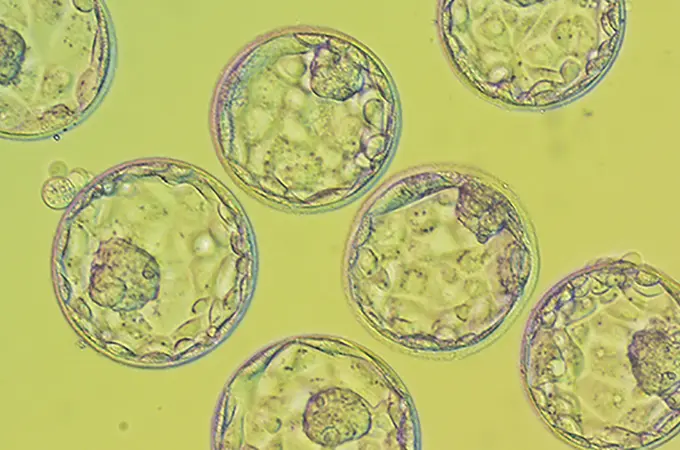When a patient comes in for fertility treatment, we aim to inform them about all aspects of their potential treatment and care through fact sheets, emails, and articles , and — most importantly of all — a direct dialogue with their primary physician and nurse.
But there is some wisdom that your Shady Grove Fertility team cannot impart because it comes from first-hand patient experience — from other patients who have walked in your shoes. For the unexpected and surprising experiences, SGF patients share 9 things no one else will tell you about fertility treatment.
1. You may find yourself second-guessing everything in the beginning.
“At the beginning of my fertility treatment cycle, it felt like there were many steps, and as a result, many possible missteps. After hearing the medication regimen and the frequency of administering medications, it felt a little overwhelming. I was so worried I would do something wrong. The first night was nerve-wracking, to say the least! But as each day went on, I was surprised at how comfortable and confident I got with each medication. I quickly became the expert that my friends would come to when they started their cycles.” –Sarah
Treatment takeaway:
A common theme that comes up with our patients is second-guessing:
- Am I giving myself the right amount of medication?
- Did I take the medication at the right time?
- Did I forget to do something important?
- Should I be eating differently?
- Should I be feeling something right now?
- Are my ovaries supposed to feel bigger? (Yes)
While these seem like inevitable questions, rest assured that your nurse and doctor will always be there to help answer your questions and address your concerns. It’s completely normal to ask many questions.
2. The egg retrieval is easy, but everyone recovers at a different pace.
“I was not that worried about starting fertility treatment, but as the egg retrieval grew closer, I found myself becoming nervous. I had never been under sedation before and I wasn’t sure what to expect. The procedure itself took about 20 minutes, and when I woke up, I felt surprisingly great! But while I’d been so focused on the procedure, I hadn’t given much thought to what recovery would be like. My nurse told me I could return to work the next day, so I expected to wake up feeling good to go. Overall, I was fine, but I definitely felt some discomfort, like a sensation of fullness. Two days later, I was as good as new.” –Charlotte
Treatment takeaway:
Most women feel fine the day after their egg retrieval, but it’s important to recognize that everyone recovers at a different pace. Some women will share similar feelings as Charlotte, with some residual discomfort.
Some women may also experience nausea due to the anesthesia. These are completely normal reactions to a surgical procedure. If you have any concerning symptoms in the days following your procedure, it’s best to call your nurse or doctor.
3. Taking a cycle off is not a bad thing.
“Sometimes, having to take a cycle off is a blessing in disguise. In our case, we had to take 6 months off for medical reasons. We embraced this time together. We took long weekends, started a brunch routine, and really enjoyed being married. While we were disappointed to learn we’d have to take a break, looking back now, we think it really saved our sanity and possibly our relationship.” –Deirdre
Treatment takeaway:
While being told that it’s best to take some time off or to skip treatment for a cycle can be difficult, our physicians have your best interest in mind. Taking some time off between cycles allows you the time to reconnect with yourself both physically and emotionally.
Fertility treatment can be an emotional journey. Giving your mind and body a break and allowing yourself time to return to a few normal routines can be a positive experience that may offer you a different frame of mind when starting treatment again.
4. You are expected to have a full bladder for the embryo transfer…which can lead to unintended consequences.
“Going into the embryo transfer, I followed my nurse’s instructions and drank 16 to 20 ounces of water. But what no one told me, or maybe I just didn’t pay attention to, was that this appointment would be different from all of the monitoring appointments. This appointment would be done with the traditional ultrasound, the type most people are familiar with from TV and movies. I was also not expecting the amount of pressure they would have to apply directly to my bladder in order to see the uterus. Midway through the procedure, I realized that I probably wasn’t going to make it through the transfer without peeing on the table. Needless to say, it happened and I was really embarrassed!” –Marianne
Treatment takeaway:
While most examinations require a transvaginal (internal) ultrasound, the embryo transfer requires an external abdominal ultrasound. Therefore, you must come to your appointment with a full bladder. The full bladder creates an acoustical window that allows the physician to visualize what’s below the bladder: the uterus.
This makes it possible for the physician to then guide the catheter into the uterus for the embryo transfer. As Marianne discovered, the pressure required to visualize the uterus during the transfer can create an unintended consequence: peeing on the table. According to our clinical staff, she is not alone, and this occurs on average 1 to 2 times per week. So please, don’t feel embarrassed!
5. Your embryo cannot fall out. We promise.
“After my embryo transfer, I became nervous about what I could or could not do. I wanted to run some errands, but to be honest, I was worried that the embryo might fall out if I moved around too much! While some activities like intercourse were off the table, the doctor assured me to go and have a carefree afternoon. I guess she was right because my husband and I went to lunch and did a ton of shopping that afternoon, and two weeks later we found out that we were pregnant!” –Sophia
Treatment takeaway:
Many patients call their nurse after the transfer — worried that their embryo may fall out, possibly while going to the bathroom. We assure you that this is not possible, as the embryo is in a much smaller space than you may realize. As one physician said, “It’s like a grain of sand in a peanut butter sandwich.”
Patients who pursue intrauterine insemination (IUI) are often concerned that sperm will fall out after the IUI is performed. But just like patients who experience an embryo transfer, your genetic materials aren’t going anywhere! Sperm will remain in the uterus.
6. Believe in the power of what’s possible.
“When I first started treatment, I really wanted to be in control of every detail. It was super overwhelming. I was able to ask a ton of questions, which helped me to understand the process. But, after a while, I realized the importance of looking at the bigger picture. I learned that nothing is impossible if you focus on an overall goal instead of tasks associated with a goal.”–Megan
Treatment takeaway:
At SGF, we believe in the power of what’s possible. Your dream of becoming a parent is within reach and we encourage our patients to believe just as much as we do. While there might be some ups and downs along the way, we find ways to overcome those challenges with you. You are never alone in this process, and we are here to support you every step of the way.
7. No matter how you feel about needles, you will likely become comfortable with them.
“Before starting my fertility treatment, I hadn’t had too many shots, let alone have to worry about giving them to myself! In the beginning, I was nervous, but I quickly grew more comfortable with each shot. By the time the cycle was complete, I couldn’t help but feel a sense of empowerment! I was finally able to take control of our situation, and do something that was actively helping my husband and I have the family of our dreams.” –Elizabeth
Treatment takeaway:
Understandably, many people hate needles — hate the thought of them, the look of them, hate everything about them. But our patients were all pleasantly surprised at how tiny the needles were and considered themselves to be injection experts by the end of their treatment journeys. When you know that the needles will help you have a baby, they become far less scary.
8. All sense of modesty will go out the window.
“At first, I was pretty nervous about privacy. Everybody I knew who was in fertility treatment was already comfortable about the world of “down there.” It wasn’t an attitude I could really understand. SGF did a good job at making me comfortable — with dim lighting in the ultrasound rooms and drapes — it seemed that by the end of my cycle, I had become as carefree as my friends were. Even when talking with other friends who were going through treatment, I was surprised at how open I became about my experiences.” –Kelly
Treatment takeaway:
At SGF, we have tremendous respect for your privacy. We do everything possible to make sure you feel as comfortable as possible during your exams and procedures.
9. Fertility treatment doesn’t stop when you have a positive pregnancy test.
“When I first started seeing Dr. Levens, I thought he would help me get pregnant and I would quickly go back to my OB/GYN. I was not expecting to stay under his care for the first 8 weeks of my pregnancy! To be honest, I had grown so close to my nurse and the team at SGF that going back to my OB/GYN was harder than I thought it would be.” –Jessica
Treatment takeaway:
Patients are often surprised to discover that a positive pregnancy test does not signal the end of their treatment. Once your embryo transfer is complete, we will continue to monitor your progress for the first 8 weeks of your pregnancy through several beta pregnancy tests (we are checking for at least a 66% increase in the beta level at each appointment), along with ultrasounds to detect a heartbeat. After 8 weeks, patients are referred back to their OB/GYN for the recommended prenatal care.
Everyone has a unique fertility treatment path, but it’s always comforting to know that other people have experienced similar things, whether they’re awkward, scary, funny, or joyful. Our social media communities on Facebook and Instagram are wonderful places to connect with past and current patients to share stories and tips as well as offer words of hope and encouragement.
Medical contribution by Anne Hutchinson, M.D.
Anne Hutchinson, M.D., sees patients at SGF’s Newark, DE, office. Dr. Hutchinson is passionate about reproductive endocrinology not only for its cutting-edge science but also for the opportunity to form meaningful, lasting relationships with patients.
Editor’s Note: This post was originally published in August 2017 and has been updated for accuracy and comprehensiveness as of July 2024.





